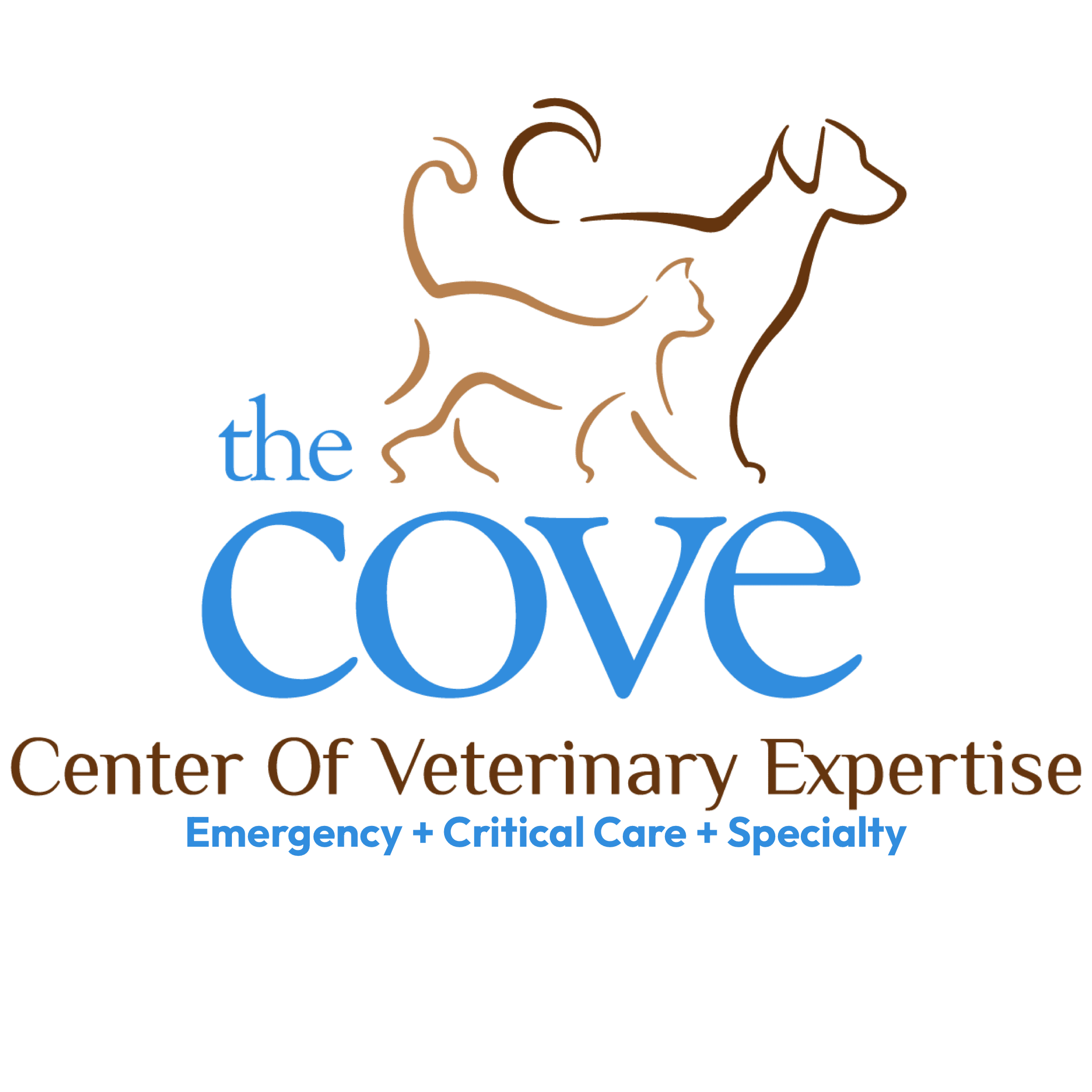Beyond Fresh Breath: The Benefits of Advanced Dentistry for Pets
If you enjoy curling up with your pet and snuggling on the couch, you know the importance of fresh pet breath while in close quarters. But, more than just hygiene, bad pet breath is one of the early signs of periodontal disease in pets, along with yellow tartar buildup on the teeth and red, swollen gums.
February is National Pet Dental Health Month, and routine dental care plays a significant role in overall pet health. Early periodontal disease detection is critical to prevent bad breath, gingivitis, and a painful mouth. When left undiagnosed, dental disease can result in even more complicated oral health problems as it progresses. In this instance and many others, advanced dentistry at The COVE can offer treatment options that might otherwise be unavailable from your primary care veterinarian.
What Is Advanced Dental Care?
Your family veterinarian can provide excellent preventive dental care and routine cleanings. There may be times when advanced dental care is needed to treat more complicated oral problems.
The advanced dentistry team at The COVE is led by Colleen Fox, DVM, CSAVP (Dentistry). In addition to her extensive training and experience, she uses specialized technology and instrumentation to treat complex dental issues.
Often, dental problems that have gone undiagnosed or untreated may result in no other option but tooth extraction. However, these teeth may sometimes be saved with advanced techniques.
Some of these include, but are not limited to:
Endodontics – Endodontic techniques are used when the internal tissues of a tooth are damaged by such causes as trauma, a tooth fracture, or bacterial infection. Root canal therapy can be performed to save a strategic tooth and maintain function.
Restorations – Enamel defects can sometimes occur due to tooth fracture or a congenital condition that prevents enamel from forming correctly. If warranted, we recommend restorations for enamel defects to protect the internal tooth structures from damage and disease.
Orthodontics – We perform orthodontic procedures to correct abnormally positioned teeth when they are causing trauma to other teeth or soft tissues. Malocclusions (misalignment of the teeth or jaw lengths) can often be identified by your family veterinarian and referred to us to prevent further pain and inflection.
Periodontal surgery – Gingivitis and periodontal disease can often be treated using advanced techniques. Root planing, bone grafts, guided tissue regeneration, and gum flap surgery can help with oral problems such as tooth infection, gum disease, and bone loss.
Maxillofacial surgery – Advanced surgical techniques allow us to repair broken jaws and remove oral masses.
Imaging
Your pet’s teeth are complicated structures, and taking x-rays of each tooth is critical in evaluating, diagnosing, and treating dental issues. The tooth resembles an iceberg in that only about ⅓ of the tooth is visible above the gum line. The remaining ⅔ of the tooth structures are not visible to the naked eye. Therefore, radiographs are the only way Dr. Fox can visualize the entire tooth and diseases or abnormalities. By viewing the internal tooth structures and the root with x-rays, we can more accurately diagnose any problems. Dental imaging also allows us to evaluate the extent of a jaw fracture or cancer, the degree of bone loss, and tooth resorption. A complete set of dental radiographs will help determine the best course of treatment and provide a baseline for monitoring treatment progress.
Anesthesia
General anesthesia is essential for any dental procedure as it enables our veterinarian and technicians to appropriately evaluate and treat your pet safely while minimizing pain and stress.
Although anesthesia is necessary for accurate diagnosis and treatment of periodontal disease, we know it can make pet owners nervous. Therefore, we take many precautions to ensure the safety of all our patients before, during, and after anesthesia.
To ensure your pet’s safety and comfort, we will:
- Perform a complete pre-anesthetic exam and take a medical history.
- Review blood work to ensure internal organs function well.
- Create a personalized anesthetic and pain management plan.
- Place an IV catheter and use fluids to stabilize blood pressure and maintain IV access.
- Monitor your pet throughout their procedure using advanced equipment by a trained, dedicated veterinary technician.
Maintaining oral health is a crucial way to keep dogs and cats healthy, and they rely on you to ensure they get the dental care they need. When pet dental health requires more than simple brushing at home and regular dental cleanings by your primary care veterinarian, your pet may benefit from the advanced veterinary dentistry services here at The COVE.
We welcome your call at (757) 935-9111 to schedule an appointment or answer any questions.
About Us
The COVE’s veterinarians and staff wholeheartedly embrace the core values of community, collaboration, commitment, compassion, and integrity. This focus ensures that pets, the people who love them, and their primary care veterinarians have as positive and affirming a healthcare experience as possible, regardless of the circumstances that bring us all together.
